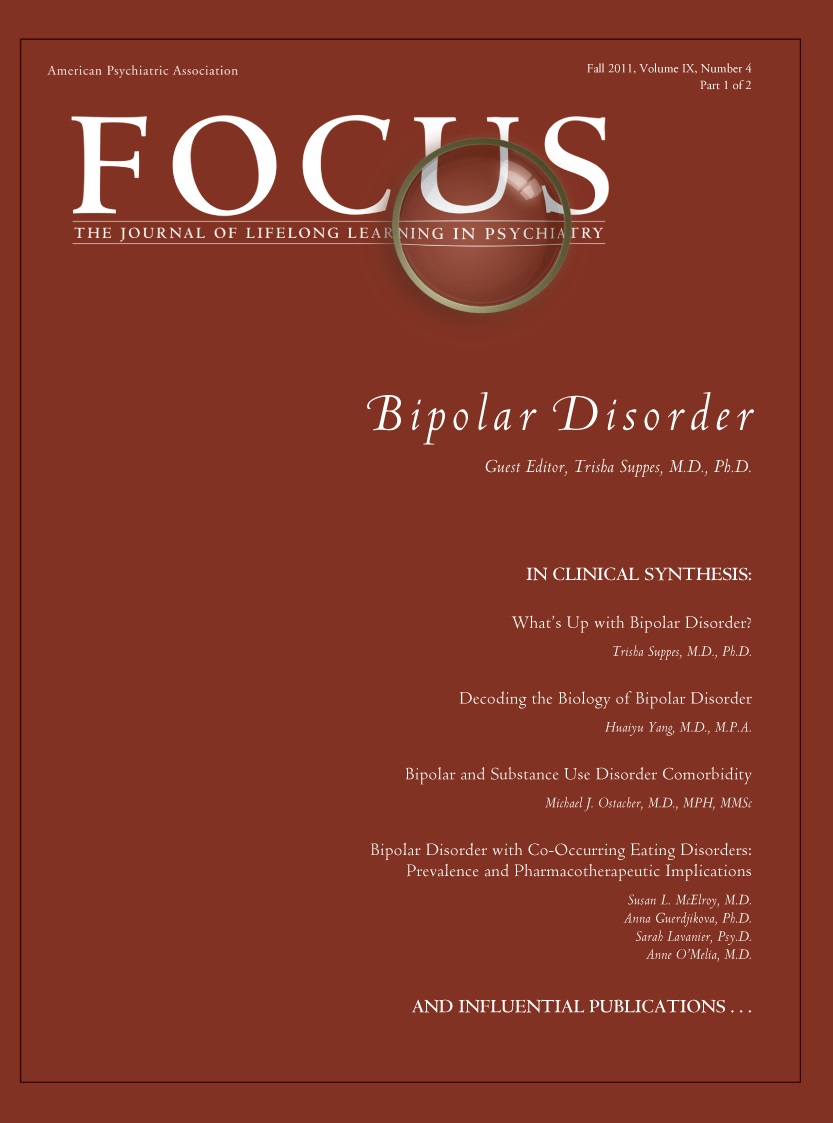From the Guest Editor
This issue of Focus will provide an overview and an update addressing treatment, diagnosis, cooccurring psychiatric conditions and biology of patients with bipolar disorder. This issue covers problems well recognized such as substance abuse in patients with bipolar disorder with Dr. Ostacher providing an update on both the limits of our evidence-base and need for good therapeutic alliance for behavioral change. Less recognized cooccurring conditions such as bipolar disorder and eating disorders is well-voiced by Dr. McElroy. Her review focuses on the issue particularly of management for patients with cooccurring eating disorders and bipolar disorder highlighting the need for both improved medication trials and specialized psychotherapies.
The importance of adjunctive psychotherapy is too often forgotten by insurers and not prioritized in many clinical settings. Dr. Cosgrove's review highlights that delaying recurrence and improving medication adherence are key proven effects of adjunctive psychotherapy for bipolar disorder. Recent neuroscience research points to the cumulative impact of recurring depression, mania, and psychosis on the brain further emphasizing the importance of minimizing new episodes. Dr. Yang's review provides readers with a succinct update on many of the areas of biological studies ongoing directed to understanding bipolar disorder and related brain function.
My contribution to this issue is an update on the current proposals for DSM-5 for bipolar disorder. Serving on the Mood Disorder Workgroup these last 3 years, and 2 more to go, is always interesting and educational. In my article I summarize some of the key changes proposed for DSM-5 Mood Disorders. I go on to discuss how the landscape of medication treatment is changing and highlight briefly some recent intriguing biologic studies. Dr. Frye's “Ask the Expert” column on mixed depression is pertinent to the proposal to add a mixed feature specifier to our mood disorder lexicon for DSM-5.



